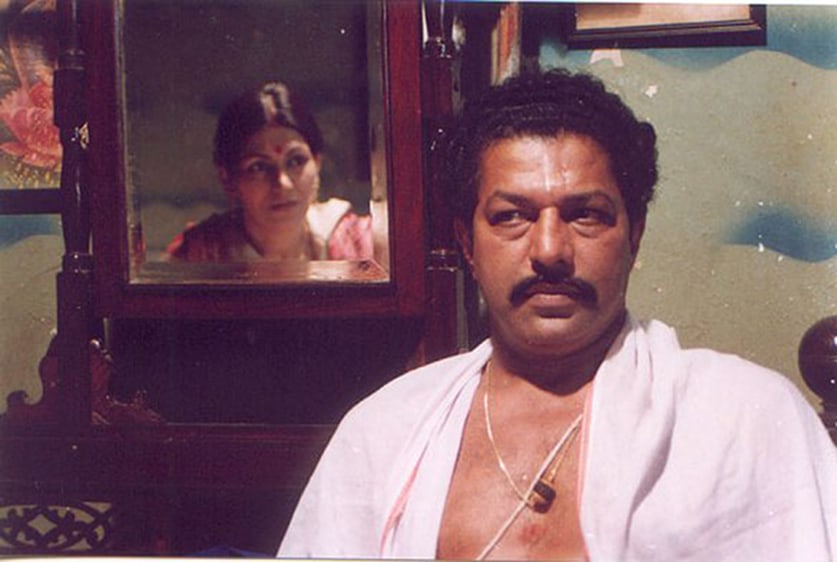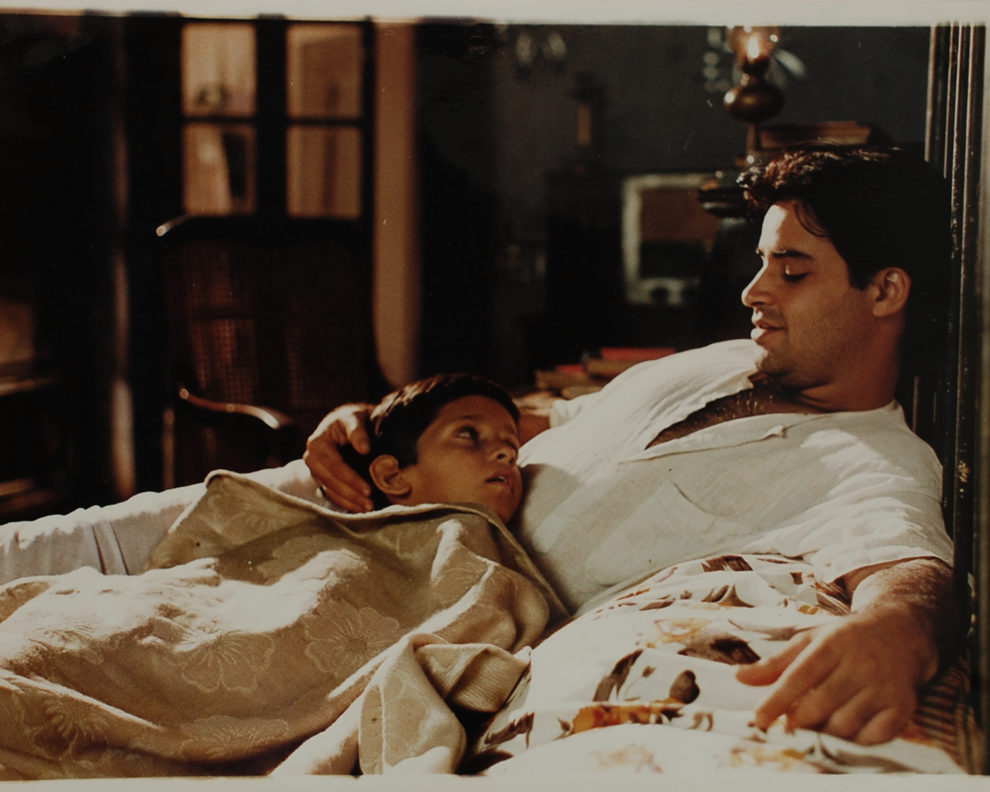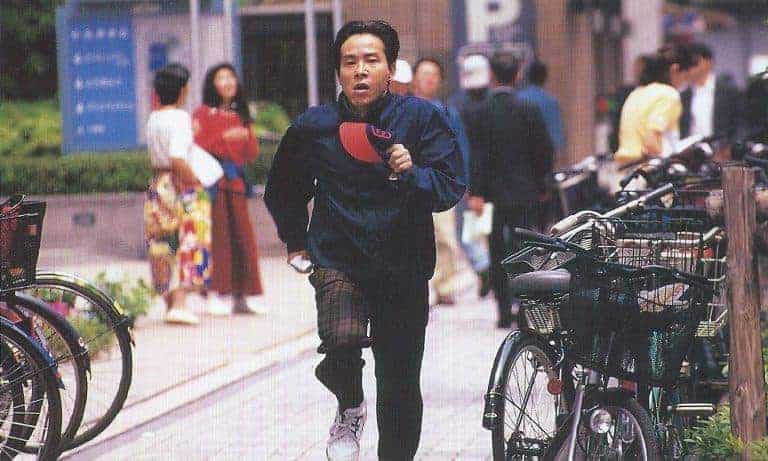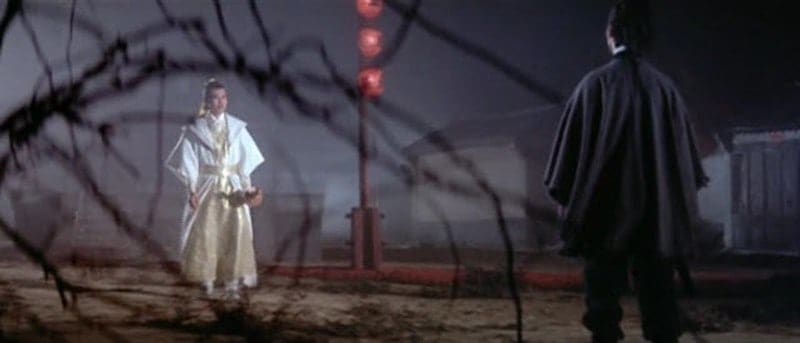Bijaya Jena's second film is probably her most famous directorial work (she also acted, scripted and produced), screening in festivals all over the world including France, Malaysia and Egypt. In 2013, it was telecast on BBC Channel 4, BBC as part of the “100 years of Indian Cinema” celebration.
The story revolves around the family of a feudal landlord, Ray Sahab, who rules over the peasants of the area with a certain degree of benevolence and justice, with the help of his right-hand man, Munim. Ray Sahab and his wife also house two distant relatives, Chandra, a young idealist poet and Kokila, a young widow whom the family treats with utmost respect, despite the prejudice surrounding women of her status in the area. The couple also takes care of Kokila's education while also assigning her work in the administration of both the stately home, with its plethora of servants, and the the peaseants of the area inhabiting it. When their daughter visits the house, her son, Rabi, gets close to both Kokila and Chandra, and the three of them start spending time together, visiting festivals, walking in the forest, and enjoying themselves in their house. Gradually, an attraction starts to form between the two youths, but a revelation about Kokila Chandra stumbles upon, confuses things. Soon, tragedy takes over the story, affecting all members of the family with different, but equally impactful consequences. Years later, Rabi returns to the manor to find things have changed completely.
Based on a short story by Rabi Das, the script written by Bijaya Jena under the advice of the late Istvan Gaal, emerges as the film's best asset. The characters are very interesting and quite realistic, with Jena showing that all people have both evil and good inside them, since none of the protagonists emerges as a true villain, even if Ray Sahab is pretty close to one. The incident (or series of) that cause so much pain to all the family is presented subtly but quite eloquently, as the turning point from the prosperity the family experienced to the utter misery that followed.
At the same time, this fate functions as a stepping point for a rather thorough analysis of the characters, mostly Chandra and Ray Sahab, but also the latter's wife and Munim on a secondary level, with the different paths all follow highlighting their individuality as it also draws interest for each and every one of them. At the same time, that the story stretches for more than a decade also works quite well for the narrative, as it allows the changes to be presented in realistic fashion.
The sole flaw of the script lies with the dialogues, which occasionally seem too artificial and on-the-nose, more like the comments the director wanted to make on various topics than words normal people utter. On the other hand, as the many comments are quite interesting, this element is toned down.
In that fashion, the movie deals with the prejudice surrounding widows, particularly in rural areas such as the one the film takes place in where gossip is everywhere, the concept of feudalism and how it was overcome by democratic procedures eventually, loyalty and self-sacrifice, and the overall place of each individual in such a segregated society. More than anything, however, the film deals with the concept of crime and punishment, this is presented though, with a sense of hyperbole resulting from the fate the “perpetrators” but also the “victim” face. In that concept, Munim rises as an “instrument”, with Uday Chandra giving a very convincing performance as the ever-loyal servant. and Chandra as a recipient of the punishment, although in his case, the retribution is unfair, but its result as glorious as possible. Akshay Anand truly shines in the part, with him portraying the many transformations his character exhibits as artfully as possible, in perfect harmony with the film's aesthetics. Bijaya Jena as Kokila highlights both her beauty and her acting on various and quite different situations, all of which are well-communicated. The one who steals the show with his acting, however, is Murali, whose portrayal of as Ray Sahab manages to be magnificent and measured at the same time, despite the complexity of the role.

Neelaabh Kaul's cinematography is another of the movie's traits, with him highlighting the beauties of the various aspects of the rural setting including various customs and festivals, with realism and artistry, and his framing (including the excellent use of mirrors) capturing perfectly the psychological statuses and the non-visible interactions of the protagonists. The poetic nature of the narrative is also well-communicated through the various images, although this element could be a bit toned down. The same applies to the use of extensive music, a trait which (along with the manifestations of poetry) is frequently met in Hindi and Bengali cinema, but actually detracts from the impact of the narrative, at least to the western eye. A bit better work would also benefit the sound department, although with a budget of just $60,000, such limitations are expected, and the film overall, emerges quite above them.
“Prologue” has some faults that seem to derive from the local style of cinema for the most part, but presents a captivating story, interesting characters, and a number of significant comments, all of which are presented in visual artfulness, thus resulting in an excellent film.















